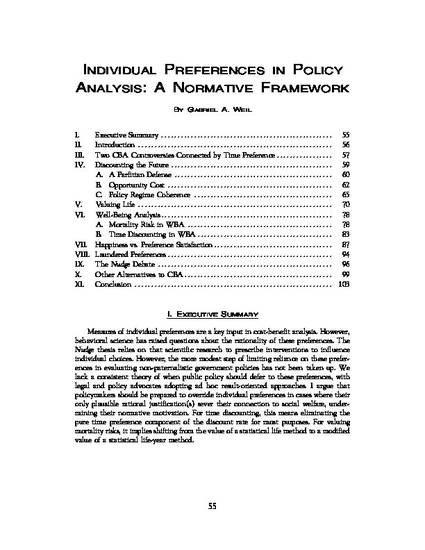
Article
Individual Preferences in Policy Analysis: A Normative Framework
Texas Environmental Law Journal
Document Type
Article
Publication Date
1-1-2020
Disciplines
Citation Information
Gabriel Weil, Individual Preferences in Policy Analysis: A Normative Framework, 50 Tex. Env't. L.J. 55 (2020).

Measures of individual preferences are a key input in cost-benefit analysis. However, behavioral science has raised questions about the rationality of these preferences. The Nudge thesis relies on that scientific research to prescribe interventions to influence individual choices. However, the more modest step of limiting reliance on these preferences in evaluating non-paternalistic government policies has not been taken up. We lack a consistent theory of when public policy should defer to these preferences, with legal and policy advocates adopting ad hoc result-oriented approaches. I argue that policymakers should be prepared to override individual preferences in cases where their only plausible rational justification(s) sever their connection to social welfare, undermining their normative motivation. For time discounting, this means eliminating the pure time preference component of the discount rate for most purposes. For valuing mortality risks, it implies shifting from the value of a statistical life method to a modified value of a statistical life-year method.